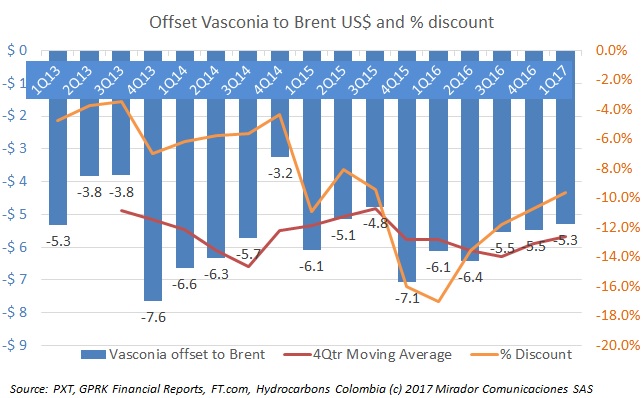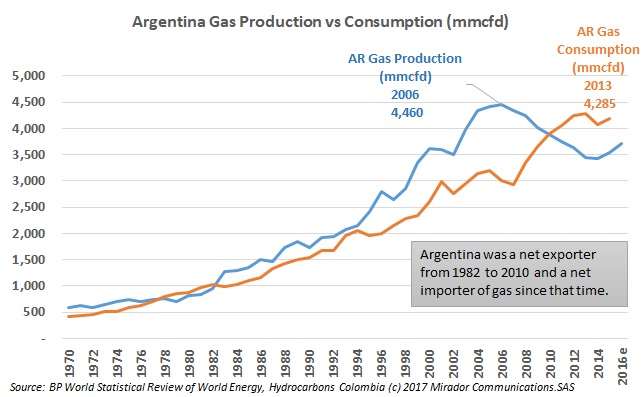
Vasconia is perhaps Colombia’s most ‘emblematic’ crude oil blend and last quarter the discount fell again, reducing the gap to Brent.
After 10 days of strikes and blockades, and almost three days of negotiations, the communities of ‘El Centro’ and Ecopetrol (NYSE:EC) signed the agreement that allows the reactivation of activities at La Cira-Infantas field.
Even though Equión and Ecopetrol (NYSE:EC) showed their commitment to their areas of influence by developing social development programs, social protests against Pacific Rubiales (TSX: PEN) took place in Yopal, and protests to demand the modernization of Barrancabermeja’s Refinery are still going in that municipality. These and other Corporate Social Responsibility (CSR) stories in our periodic summary.
In our second look at Argentina’s oil and gas industry, we examine how a dependency on natural gas has led to a fiscal crisis, and how the potential for shale resources could alleviate this problem and make the country and exporter of hydrocarbons once again.

This week’s article on the Argentine oil and gas industry is devoted to unconventional resources, which, in Argentina’s case mostly means gas.
The Ministry of Mines and Energy (MinMinas) took part in the Extractive Industries Transparency Initiative (EITI) conference in Oslo (Norway).
The popular consultation that will determine whether citizens of Cumaral (Meta) approve oil activities in their territory or not, will take place on July 4th. Ecopetrol’s (NYSE:EC) president went to the municipality to defend the NOC’s position on the matter.
The Union showed support toEl Centro community regarding protests at La Cira –Infantasfield, as well as to Barrancabermeja’s protesters, who demand the modernization of the Refinery.

There is optimism about the sector’s performance this year. Oil companies announced good financial and operational resultsduring 1Q17, and Colombian authorities hope to see better results in coming quarters.
ExplorationThe Colombian government is optimistic about the results that offshore projects could give in the Caribbean Sea, especially in gas.